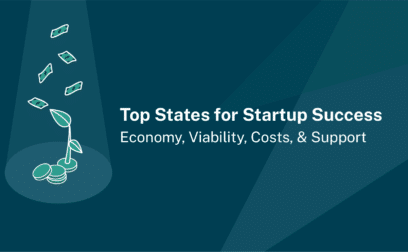TABLE OF CONTENTS

An SBA loan is a loan that is issued and partially backed by the Small Business Administration (SBA). The SBA plays a role in helping small businesses gain access to capital they need to start, grow, and expand their operations. The SBA offers several loan programs, such as the SBA 7 (a) loan program and the SBA 504 loan program, that provide businesses with the funds they need for their ventures. SBA loans typically have competitive interest rates and long repayment terms, making them an attractive option for businesses seeking capital.
To find out more about a specific type of SBA loan, please click one of the options below, or use our SBA loan calculator.
SBA loans are loans that are guaranteed by the U.S. Small Business Administration (SBA). The SBA does not actually provide the loans themselves, but rather guarantees a portion of the loan provided by participating lenders, such as banks or credit unions.
Here are the general steps to obtain an SBA loan:
It’s important to note that SBA loans can be more difficult to obtain than other types of loans because of the eligibility requirements and the lengthy application process. However, they can be a good option for businesses that may not qualify for traditional bank loans or need longer repayment terms.
Your loan details
This calculator is intended for illustration purposes only and exact payment terms should be agreed with a lender before taking out a loan.
Your results
Total payments
- months
Total interest paid
$-
Total financing cost
$-
Monthly loan payment
$-
Total annual payments
$-
This calculator is intended for illustration purposes only and exact payment terms should be agreed with a lender before taking out a loan.
There are several benefits of SBA loans for small businesses, including:
Overall, SBA loans can be a valuable source of funding for small businesses, offering lower interest rates, longer repayment terms, and flexible use of funds. However, the application process can be more involved than other types of loans, and eligibility requirements must be met.
Join the 95,000+ businesses just like yours getting the Swoop newsletter.
Free. No spam. Opt out whenever you like.
Kingfisher Way, Silverlink Business Park, Newcastle upon Tyne, NE28 9NX, UK
View in Google Maps35 Bull Street, Lewis Building, Birmingham B4 6AF, UK
View in Google MapsAberystwyth Innovation and Enterprise Campus
Gogerddan Campus
Aberystwyth University
Ceredigion
SY23 3EE
Dogpatch Labs, The CHQ Building, Custom House Quay, Dublin, Ireland
View in Google MapsSuite 801, Level 8, 84 Pitt Street, Sydney, NSW 2000, Australia
View in Google Maps43 W 23rd St, New York, NY 10010, United States
View in Google Maps21 Dreyer Street, Cape Town, South Africa, 7708
View in Google MapsClever finance tips and the latest news
Delivered to your inbox monthly
Join the 95,000+ businesses just like yours getting the Swoop newsletter. Free. No spam. Opt out whenever you like.




